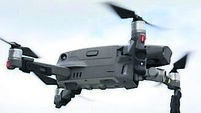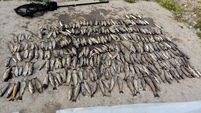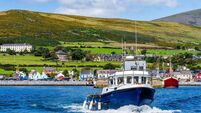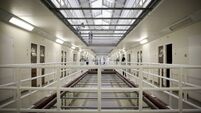West Cork museum to display letters that focus on Michael Collins's international connections
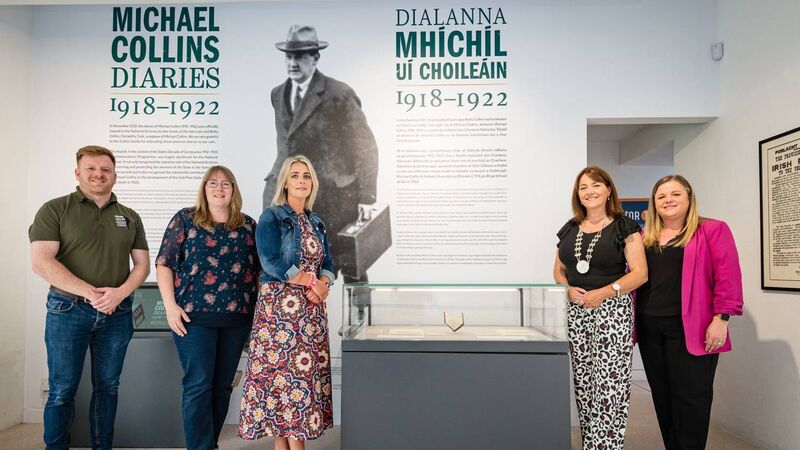
(Left to right) Jamie Murphy, General Manager of Michael Collins House Museum, Jessica Baldwin, Senior Conservator at the National Archives of Ireland, Eimear O’Neill, Municipal District Officer at Cork County Council, Cllr Caroline Cronin, Chair of the West Cork Municipal, and Aoife Power, Administrative Officer at Cork County Council, at the launch of Michael Collins's diaries. Photo: Dermot Sullivan
Letters that give a remarkable new insight into Michael Collins’s international role have gone on display in West Cork for the first time.
The selection of letters were exchanged between Collins and Donal Hales, a fellow Cork man who was an Irish diplomat based in Italy from 1919 to 1922.




